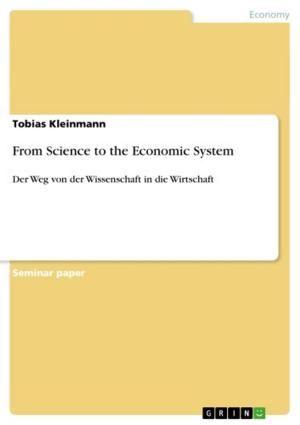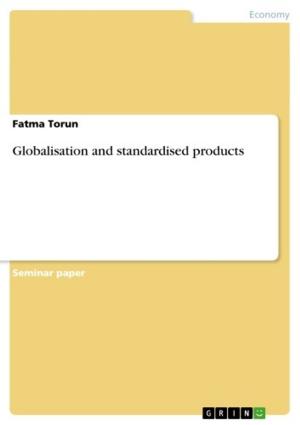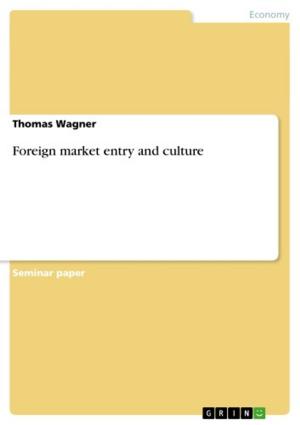Political Economy of Economic Growth: A Cross Comparison of Egypt and Turkey
Business & Finance, Economics, Macroeconomics| Author: | Deena Saleh | ISBN: | 9783656862833 |
| Publisher: | GRIN Publishing | Publication: | December 17, 2014 |
| Imprint: | GRIN Publishing | Language: | English |
| Author: | Deena Saleh |
| ISBN: | 9783656862833 |
| Publisher: | GRIN Publishing |
| Publication: | December 17, 2014 |
| Imprint: | GRIN Publishing |
| Language: | English |
Seminar paper from the year 2014 in the subject Economics - Macro-economics, general, grade: A3, Hacettepe University (Department of Economics), course: International Political Economy, language: English, abstract: Growth economics is the branch of economics answering questions related to what are determinants of economic growth; whether is it possible to reach a maintainable growth rate on the long run, if it is preferable to let governments interfere in market performance in order to fasten rates of economic growth. Harrod and Domar attempted to answer these questions through applying Keynes economics for economic analysis. They found that savings and investments stable rates are the key for rapid long term growth especially in developing countries. Therefore, government intervention was needed to help stimulate savings and investments. Years later, Solow and Swan attempted to answer same questions through their neoclassical growth model. In this model, it was assumed that a maintained rising saving rates leads to transition from slow growth into fast growth path. This meant a focus on technological progress. However, part of the growth was not explained by growth in production factors which are capital and labor. Solow stated that this unexplained factor was the residual or total factor productivity. Therefore, government policies were assumed to be effective on aggregate output not on growth rates.
Seminar paper from the year 2014 in the subject Economics - Macro-economics, general, grade: A3, Hacettepe University (Department of Economics), course: International Political Economy, language: English, abstract: Growth economics is the branch of economics answering questions related to what are determinants of economic growth; whether is it possible to reach a maintainable growth rate on the long run, if it is preferable to let governments interfere in market performance in order to fasten rates of economic growth. Harrod and Domar attempted to answer these questions through applying Keynes economics for economic analysis. They found that savings and investments stable rates are the key for rapid long term growth especially in developing countries. Therefore, government intervention was needed to help stimulate savings and investments. Years later, Solow and Swan attempted to answer same questions through their neoclassical growth model. In this model, it was assumed that a maintained rising saving rates leads to transition from slow growth into fast growth path. This meant a focus on technological progress. However, part of the growth was not explained by growth in production factors which are capital and labor. Solow stated that this unexplained factor was the residual or total factor productivity. Therefore, government policies were assumed to be effective on aggregate output not on growth rates.















